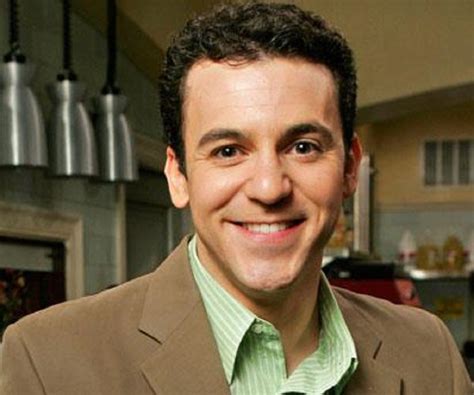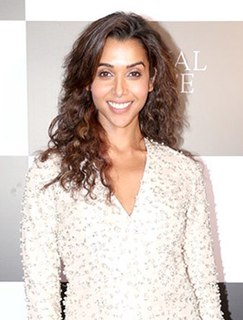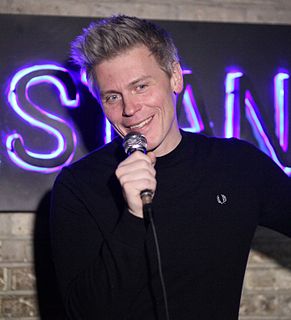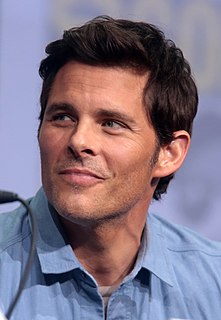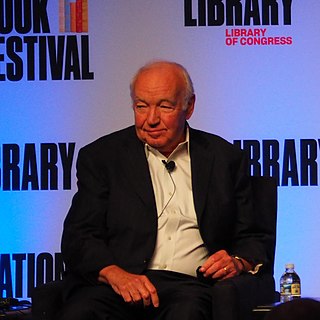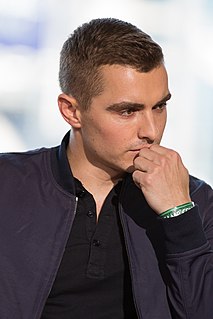A Quote by Fred Savage
Really, anyone in the business who transitions into directing as a writer or editor or an actor or a cinematographer, at some point you have to kind of take a leap and say, 'I'm committed to this.'
Related Quotes
I learn a lot as a director from acting in other people's films and just in general. I want to try and be as involved in the art of filmmaking as possible. I feel that the only way to really do that is to take on as many roles as possible, whether it be as an actor, an editor, a director, a cinematographer. Basically, I like to help and be involved, so anything anybody asks me to do, my first reaction is to say "Yes."
You can say something that can really help and actor and you can say something that can really get in the way of an actor's performance, kind of cut them off from their instincts and really get into their heads. And every actor's different. Every actor requires something different. Being an actor, for me, was the greatest training to be a writer and director.
My abject hatred of actors and the acting world. I went to college as an actor, and halfway through, I switched to playwriting and directing. Then I spent a couple years working in publishing, doing some freelance journalism for The Village Voice and Musician magazine. I thought my life was going to be as a writer, but then I realized I missed performing, so I got into comedy. It was a nice combination of things I was sort of good at. I was a pretty good writer and a decent actor, but I didn't really like acting, and I didn't have the discipline to be a writer.
I have a great editor and I enjoy, in a masochistic way, being ruthless about my own performance. How do I know, but I think I'm quite good at saying, "That's no good. That's no good. That's it. That's it. That's good." And I'm with the editor who goes, "No, I think you're wrong. That's not your best." There's an initial point in the editing, if you're directing yourself, especially in my case, where you go, "Ouch, ouch, ouch, I can't watch this." And then, there's a point where you become hard-nosed and just take your neurosis away and go, "What's working? That's okay. That's okay. We can lose that, and lose that." You get objective about it.
My last point about getting started as a writer: do something first, good or bad, successful or not, and write it up before approaching an editor. The best introduction to an editor is your own written work, published or not. I traveled across Siberia on my own money before ever approaching an editor; I wrote my first book, Siberian Dawn, without knowing a single editor, with no idea of how to get it published. I had to risk my life on the Congo before selling my first magazine story. If the rebel spirit dwells within you, you won't wait for an invitation, you'll invade and take no hostages.
At some point I just acknowledged, at least to myself, that I had a great deal of respect for people of faith. Faith is a strange and wonderful thing. You come up to a kind of wall of unknowing and instead of turning back in despair you leap over it into something else. The Church isn't why I'm a writer, but it's probably a part of it.
I think, then, there's the sort of, like, political dimension to lyrics. One of the problems that I've had with my output as a lyric writer is that I look back at it and there's some turn-of-phrases and some images and some kind of montage-y kinds of things I'm really proud of. But it kind of bums me out that people have told me again and again that they don't really understand what I'm trying to say.
I always thought the editor should cut the film and so I'll come in and look at the movie. Just because that's the only way I can really see the ideas of the editor, it's really working together. Yes it's a hierarchy, yes I'm the boss, but I like to see and to think about the idea, and it's about us asking, 'do we have to say that?' and, 'how do we make it there?' So it's advising the editor, it's very give and take, it's very free, but in the end, it's wonderful once you get through the first couple of cuts.
